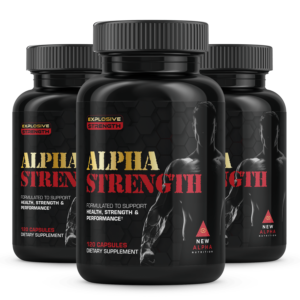Testosterone Health: The Ultimate Guide: What is Testosterone and why it is important? Importance of Testosterone Production: Importance of the role of testosterone in the body: Signs and symptoms of low testosterone: How to naturally boost testosterone: What are the best foods to increase testosterone levels? Is testosterone replacement therapy (TRT) for me? What are the side effects of TRT? Conclusion -Video -Info graph

In today’s modern society, the topic of boosting healthy testosterone levels to maintain your masculinity. Has been under threat in the 21st century and has been a serious issue for many men over 30 years of age.
Consequently with an abundance of information and misinformation, understanding the true nature and impact of testosterone on our bodies can be overwhelming.
From athletes aiming to enhance performance to aging adults seeking vitality, testosterone plays a vital role in overall well-being.
Introducing “Testosterone Health: The Ultimate Guide” – your go-to resource for everything you need to know about this vital hormone.
Therefore discover its functions, benefits, potential health risks, and effective management strategies.
But before we dive in and explore all aspects of testosterone health in detail! Lets take a look at What is Testosterone and why it is important?
What is testosterone and why it is important?
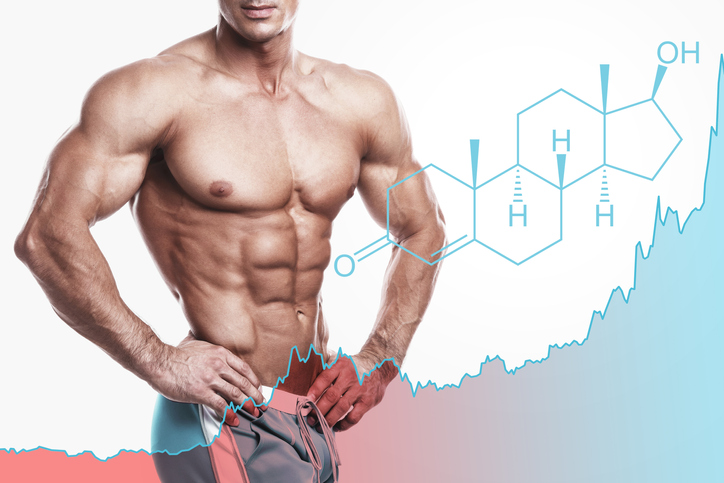
Lets face it the latest model in Testosterone wellbeing is a powerful hormone that can enhance athletic ability and could be perceived as the key to the “fountain of youth”
Testosterone is an essential hormone that belongs to the androgen group, commonly known as the “male hormone”.
During puberty, it plays a vital role in shaping male characteristics like voice deepening, facial and body hair growth, and muscle development.
This vital hormone also affects various body functions, including the production of red blood cells, bone density, and sexual function. It also has a significant impact on mood, energy levels, and cognitive function.
Importance of Testosterone Production
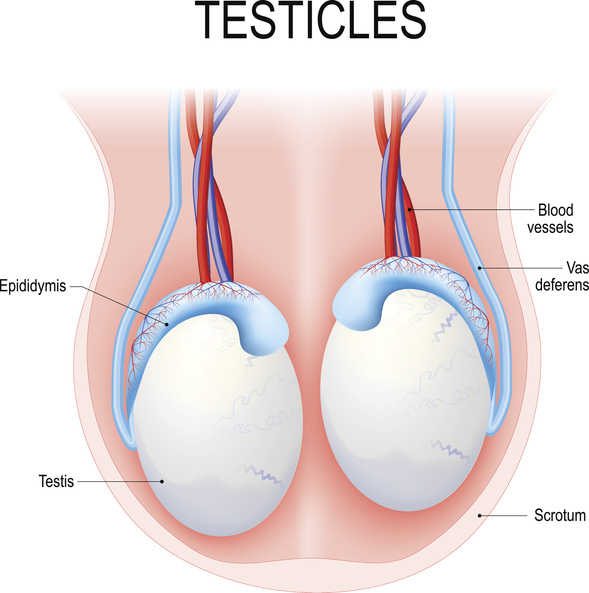
Testosterone is primarily produced in the testicles of men. Testosterone production starts at puberty when the hypothalamus signals the pituitary gland to release luteinizing hormone (LH). LH then stimulates the testicles to produce testosterone.
Testosterone production is important for male reproductive function, including sperm production and sex drive. Certain medical conditions, such as infections or injuries to the testicles, can affect testosterone production.
Additionally, lifestyle factors like excessive alcohol consumption and drug use can also impact testosterone production in the testicles.
Importance of the role of testosterone in the body
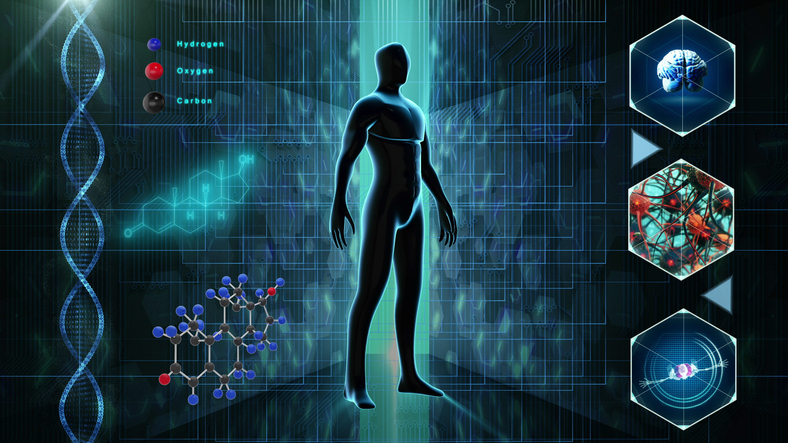
Apart from its role in sexual development and function, the ultimate guide to testosterone health shows that testosterone also plays a vital role in maintaining your overall masculinity.
Adequate levels of this hormone are necessary for maintaining :
a. It helps “strengthen” bone density
Testosterone plays a crucial role in maintaining bone mineral density (BMD) by stimulating the production of osteoblasts, which are cells responsible for bone growth and strength. Low levels of testosterone can lead to a decrease in bone density, making men more susceptible to conditions like osteoporosis.
b. It “supports” muscle development and maintenance
Testosterone is known as an anabolic hormone, meaning it promotes muscle growth and development. Conversely it does this by increasing protein synthesis in the muscles, leading to increased muscle mass and strength. This is why testosterone supplements are often used by bodybuilders and athletes.
c. “Regulates” fat distribution
Testosterone regulates fat distribution by stimulating the production of lipoprotein lipase, an enzyme responsible for breaking down fats.
This helps to prevent the accumulation of fat in certain areas, such as the abdomen. Proper levels of testosterone are essential for maintaining a healthy body composition and reducing the risk of obesity-related health issues.
d. It “impacts” cognitive function
Studies have shown that testosterone has a positive impact on cognitive function, particularly in areas such as memory and spatial ability.
This hormone also plays a role in protecting brain cells from damage and promoting their growth. Some research suggests that testosterone may even have potential benefits in improving symptoms of Alzheimer’s disease.
e. It ” releases” dopamine in the brain
There is evidence to suggest that testosterone may have a direct impact on the production and release of dopamine in the brain. Consequently dopamine is a neurotransmitter (chemical messenger) associated with pleasure, motivation, and reward.
Subsequently decreased dopamine activity, resulting from low levels of testosterone, has been associated with feelings of apathy and reduced motivation.
f. It “regulates” insulin in the body
In addition to its role in sexual function and mood, testosterone also plays a crucial role in regulating insulin levels in the body. Insulin is a hormone that helps regulate blood sugar levels and is essential for energy production.
Furthermore testosterone has been found to enhance insulin sensitivity, meaning that it helps the body use insulin more effectively. This can help prevent high blood sugar levels and reduce the risk of developing type 2 diabetes.
Low testosterone levels have been linked to insulin resistance, which can lead to high blood sugar and insulin levels.
Signs and symptoms of low testosterone
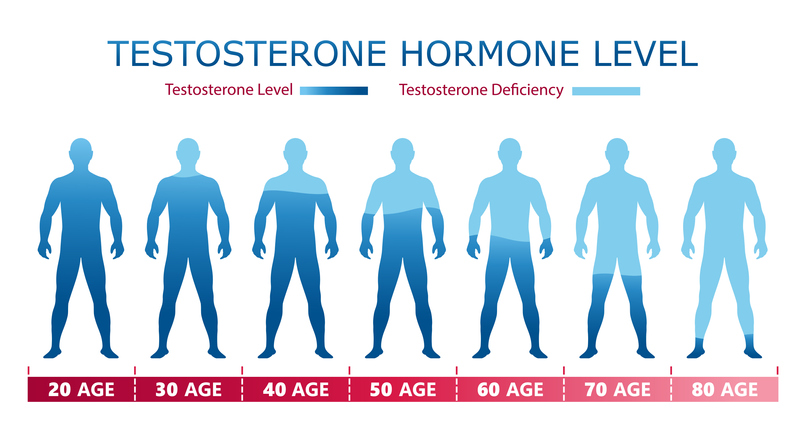
As men age, their T levels begin to decrease fostering signs and symptoms of low testosterone. Therefore each year after 30 years a man will lose 1% of testosterone per year. Consequently by the age of 50 years a man can lose up to 20% testosterone levels.
In regards to the latest guide in male masculine heatlh this deficiency has been influenced by can result in a variety of physical and emotional symptoms. Low testosterone levels in men are associated with:
a. Physical signs
Low testosterone levels can lead to decreased muscle mass and strength, making it difficult to maintain a lean physique. This can also result in weight gain, particularly around the midsection.
Other physical signs of low testosterone may include:
- Decreased bone density, leading to increased risk of osteoporosis
- Hair loss or thinning
- Increased body fat percentage
- Decreased body hair growth
b. Emotional signs
Testosterone plays a role in regulating mood and mental well-being. Therefore Low levels of testosterone can contribute to frequent mood swings, irritability, and even depression. Other emotional signs of low testosterone may include:
- Lack of motivation or drive
- Difficulty concentrating or focusing
- Anxiety or feelings of worthlessness
c. Sexual signs
Testosterone is essential for maintaining a healthy sex drive in men. However low levels of testosterone can lead to a decrease in libido and even erectile dysfunction. Other sexual signs of low testosterone may include:
- Difficulty achieving or maintaining an erection
- Decreased quality of erections
- Reduced sperm count
- Infertility
Several other factors can contribute to low testosterone, such as
- certain medical conditions like diabetes and obesity
- lifestyle factors like poor diet
- lack of exercise
- chronic stress
Treatment for low testosterone may include:
Hormone replacement therapy or lifestyle changes, depending on the underlying cause. So It’s important to consult with a healthcare professional if you are experiencing signs of low testosterone to determine the best course of action for your individual situation
The Aging Male Symptoms (AMS) rating scale
The Aging Male Symptoms (AMS) rating scale is a useful tool for assessing the severity of symptoms related to low testosterone in men. It consists of 17 items that measure three domains: psychological, somatic, and sexual symptoms.
The total score ranges from 17 to 68, with higher scores indicating more severe symptoms.
Some common questions on the AMS scale include: “Do you have a decrease in libido (sex drive)?” and “Have you lost height?”
Consequently the scale can be used as a baseline measure to track changes in symptoms over time or as a guide for determining the need for treatment.
How to rate the AMS Questionnaire:
Each question is represented by a five-point Like item (from 1 = “no symptoms” to 5 = “very severe symptoms”). Therefore, possible total scores range from 17 to 85
(17–26 points: no symptoms; 27–36 points: mild symptoms; 37–49 points: moderate symptoms; >50 points: severe symptoms).
How to naturally boost testosterone levels
In addition to medical treatment, there are also natural ways to help boost testosterone levels. Through the Testosterone Health: The Ultimate Guide some strategies include:

- Eating a healthy and balanced diet: Certain foods such as red meat, oysters, tuna, and fortified cereals contain nutrients that can help support testosterone production.
- Exercising regularly: Resistance training and high-intensity interval training (HIIT) are effective in increasing testosterone levels.
Related article read more: What Are The Best Exercises To Increase Your testosterone levels
- Getting enough sleep: Lack of sleep can disrupt hormone production, so it’s important to aim for 7-9 hours of quality sleep each night.
- Managing stress: Chronic stress has been linked to low testosterone levels, so finding healthy ways to manage stress such as meditation or therapy can help improve hormone balance.
- It’s also important to note that maintaining a healthy body weight and avoiding excessive alcohol consumption can also contribute to balanced testosterone levels.
Consulting with a healthcare professional or registered dietitian can help create a personalized plan for natural ways to boost testosterone levels.
With dedication and consistency, these lifestyle changes can potentially improve symptoms of low testosterone and promote overall health and well-being.
Check out this related article: Top 10 Ways To Increase Testosterone Levels Naturally
Latest foods to boost testosterone health?

The Ultimate Guide to Testosterone wellbeing is dependant on maintaining a healthy diet is crucial in promoting overall health, including testosterone production. Some foods that are known to naturally boost testosterone levels these include:
- Tuna: High in vitamin D and protein, which are both important for testosterone production.
- Shellfish: Contains high levels of zinc, a mineral that is important for testosterone production.
- Oysters: Known as an aphrodisiac, oysters are also high in zinc and can help increase testosterone levels.
- Beef: Contains zinc, vitamin D, and cholesterol, all of which contribute to testosterone production. Opt for lean cuts to avoid excess fat intake.
- Beans: A good source of plant-based protein and high in zinc, beans are a great addition to a testosterone-boosting diet.
- Olive oil: A healthy source of monounsaturated fats, which can help maintain optimal hormone levels.
- Garlic: Contains a compound called allicin that may help lower cortisol levels (the stress hormone) and improve testosterone levels.
In addition to incorporating these foods into your diet, it’s also important to limit excess fat intake from sources like fried foods and highly processed snacks.
These types of foods can contribute to inflammation and negatively affect hormone production. It’s also important to maintain a healthy weight, as excess body fat has been linked to lower testosterone levels.
Check out this related article: Testoserone Boosting Fruits
Check out this related article: Natural Foods To Boost Testosterone
The Psychological Benefits of Healthy Testosterone Levels

Aside from the physical benefits, maintaining healthy testosterone levels can also have a positive impact on one’s psychological well-being. Furthermore testosterone has been linked to traits such as competitiveness, higher risk-taking, strong will and determination.
Studies have shown that individuals with higher levels of testosterone tend to be more assertive, confident and ambitious. This can translate into success in various areas of life, such as career progression, sports and personal relationships.
Therefore by maintaining optimal levels of testosterone through our ultimate guide to testosterone health, individuals may experience an increase in energy and overall sense of well-being.
Is testosterone replacement therapy (TRT) for me?

Testosterone replacement therapy should only be considered for individuals with seriously low testosterone levels confirmed by blood tests. And who are also experiencing symptoms such as decreased libido, fatigue, and mood changes.
Please refer to the AMS ( Aging Male Symptoms) rating scale if you are unsure of how severe your tesoterone levels maybe?
It’s also important to consult with a healthcare professional before starting any testosterone treatment, as it can have potential side effects and interactions with other medications.
What are the possible side effects of TRT?
Some potential side effects of testosterone replacement therapy include:
- Acne
- oily skin
- increased red blood cell production
- increased risk of cardiovascular events
- A decrease in sperm count
- Testicular shrinkage
- development of prostate cancer or worsening of existing prostate cancer
Moreover, individuals with certain medical conditions such as:
- Sleep apnea,
- heart disease
prostate problems may not be suitable candidates for testosterone replacement therapy.
It’s important to discuss your medical history and any concerns with your healthcare provider before starting any treatment.
Conclusion
In this Testosterone Health: The Ultimate Guide, we’ve covered everything you need to know about testosterone’s importance for overall health. Testosterone is a vital hormone that plays a crucial role in muscle growth, bone density, libido, and more.
Maintaining healthy testosterone levels is crucial for both men and women. Low testosterone can lead to symptoms like decreased energy, muscle loss, and reduced sex drive. Understanding factors that affect testosterone production and taking necessary steps to maintain optimal levels is crucial.
Treatment options include lifestyle changes, natural supplements, and testosterone replacement therapy (TRT). Additionally consult with a healthcare professional before considering TRT to understand potential side effects.
Regular monitoring of testosterone levels is necessary during TRT. Incorporating a balanced diet, exercise, and additionally healthy habits can naturally boost testosterone levels.
Certain foods like lean protein, healthy fats, and zinc-rich foods positively impact testosterone production.
But with the right approach, you can naturally boost testosterone and improve your quality of life. So start implementing these tips today and feel the positive effects on your well-being!
Check out this amazing website! MensHealth: Testosterone HQ

